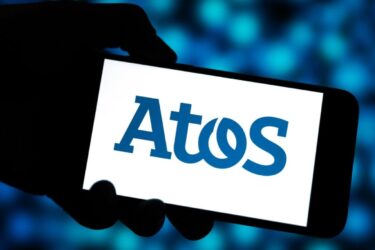Recent events in world politics have been most harrowing. They have had a knock on effect on the IT industry. Not for one moment can such problems be compared to the scale of the human tragedy we have seen, but nor can we hide our head in the sand and ignore the consequences. For one thing the shock has caused a downturn in the global economy and this is bound to create job losses in the IT industry as well as many others. Again this is nothing like as severe as the impact on those directly confronted by terrorism, but nor is it insignificant.
The IT industry is a service industry, even if the size of IBM, HP, Microsoft, etc. seems to create the impression that it is a fundamental industry (IT would be perfect if it weren’t for those interfering users!). Thus as global cut-backs in other industries occur, then there is a knock on effect on IT. This will not be evenly distributed throughout the industry either. Companies will be increasingly aware that they must focus on core business efficiency, which means that data processing is of more significance than office automation. In a period of recession the concentration must be on "getting invoices out faster and lowering stock levels". In practice this means that two recent trends are moving in the right direction, ERP and e-commerce. The value of CRM will come into question and now is probably the time to step back and evaluate whether or not there is any return on investment or is this another fad. The one thing I cannot understand is why anyone will want to throw more good money after bad in yet more office automation. It doesn’t take rocket science therefore to appreciate why Microsoft is moving its emphasis from desktop products to servers and services, which is where the future lies.
Clearly with the emphasis on Hailstorm and the .NET strategy Microsoft see e-commerce as their best route to dominance of the data processing side of IT, quite rightly because this is the new and developing market. In contrast the more traditional DP systems are dominated by IBM, Unix vendors and Oracle, which are very well established. They have also been the attention of a lot of investment recently with the attempt to integrate various systems into a common ERP package. In all too many cases this has not been a wholly satisfactory situation and many companies are still struggling to get some value from this huge investment, so they are unlikely to be interested in any further ERP developments for some years to come. Microsoft have correctly judged therefore that the best point to attack is the newer market for e-commerce applications.
Needless to say IBM, et al are also equally aware that e-commerce is the big opportunity for them. They have a big advantage over Microsoft in that they have much more appropriate products, e.g. DB2 v SQLServer, AIX or z/OS v Windows, etc. Further a lot of e-commerce is about integration with existing applications in which Microsoft’s presence is negligible. And so Microsoft are planning to strike first at the point where Oracle et al have little control, at the fabric of the Internet itself.
The Internet so far is serviced by AOL, Yahoo, etc. The Microsoft MSN network is relatively small at the moment, but it is a lot bigger than anything IBM or Oracle control. Only Sun of the big IT suppliers, in the relationship with iPlanet/Netscape, have a direct Internet presence. To succeed Microsoft must dominate AOL first, which would then give them the muscle to challenge IBM and more specifically Oracle. This might be difficult to do, given the size of the established AOL network, but being first isn’t always a recipe for long time success. AOL have built their presence on domestic services, in which all users use a PC and with it Microsoft software. It follows that AOL cannot dictate the user interfaces, but Microsoft can undermine AOL by focussing on the growth of e-commerce and winning the mind share of the naive user base. Far more difficult for Microsoft in these early exchanges is the need to dominate the servers in the network by persuading developers to use Windows XP and the software products which are part of .NET. This they can easily achieve within MSN, but there is then the possibility that the frailties of Windows will be cruelly exposed when directly compared to more robust software, Linux in particular, used by competing networks.







